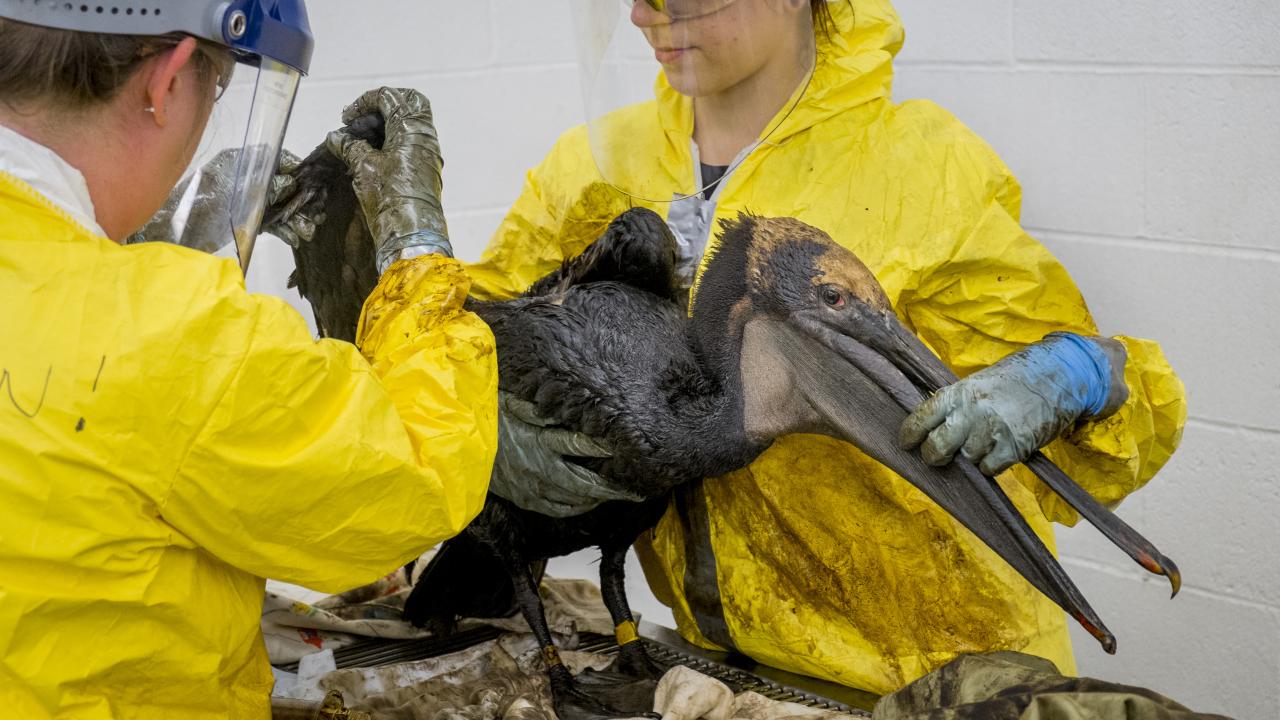The following sources from the University of California, Davis, are available to talk with media about climate change in relation to wildlife health, wildlife conservation and infectious disease.
More UC Davis climate change experts lists are available under the topic areas of atmospheric sciences, water, wildfire and air quality, agriculture, energy and transportation, and community resilience.
Wildlife health and conservation
Joe Gaydos is science director for the SeaDoc Society, a program of the School of Veterinary Medicine based on Orcas Island in Washington state. He can discuss the effects of a changing climate on marine life, such as sea stars, birds and whales, as it relates to disease, prey availability or changes in animal distributions. Contact: 360-914-1083, jkgaydos@ucdavis.edu
Michael Ziccardi directs the Oiled Wildlife Care Network out of the School of Veterinary Medicine. He can discuss the effects of oil spills on wildlife, including, birds, otters, sea turtles and others. Contact: 530-752-4167, mhziccardi@ucdavis.edu
Eric Post, a professor of Wildlife, Fish and Conservation Biology, can discuss how climate change is affecting “nature’s clock,” or phenology, at his long-term study site in Greenland. He specializes in the ecological consequences of climate change and its impacts on wildlife conservation. Contact: 530-574-1346, post@ucdavis.edu
Brian Todd is a conservation biologist and professor in the Department of Wildlife, Fish and Conservation Biology. He can discuss how climate change and other environmental factors are affecting turtles, desert tortoises, snakes, and other reptiles and amphibians. Contact: 530-752-1140, btodd@ucdavis.edu
Daniel Karp is an assistant professor in the Department of Wildlife, Fish and Conservation Biology. He can discuss solutions for conserving wildlife in working landscapes, including the use of natural habitat around farm fields and issues of land-use conversion. Contact: 530-219-9868, dkarp@ucdavis.edu
Infectious disease and planetary health
Woutrina Smith is co-director of the UC Global Health Institute’s Center of Expertise on Planetary Health and an associate professor of infectious disease epidemiology at the School of Veterinary Medicine. She can discuss climate impacts related to zoonotic disease transmission. Contact: wasmith@ucdavis.edu
Christine Kreuder Johnson is a professor of epidemiology and ecosystem health and directs the EpiCenter for Disease Dynamics at UC Davis. She can discuss the role of climate change and other factors in emerging infectious diseases and efforts to prevent pandemics. Contact: ckjohnson@ucdavis.edu
Media Resources
Kat Kerlin, UC Davis News and Media Relations, 530-750-9195, kekerlin@ucdavis.edu
